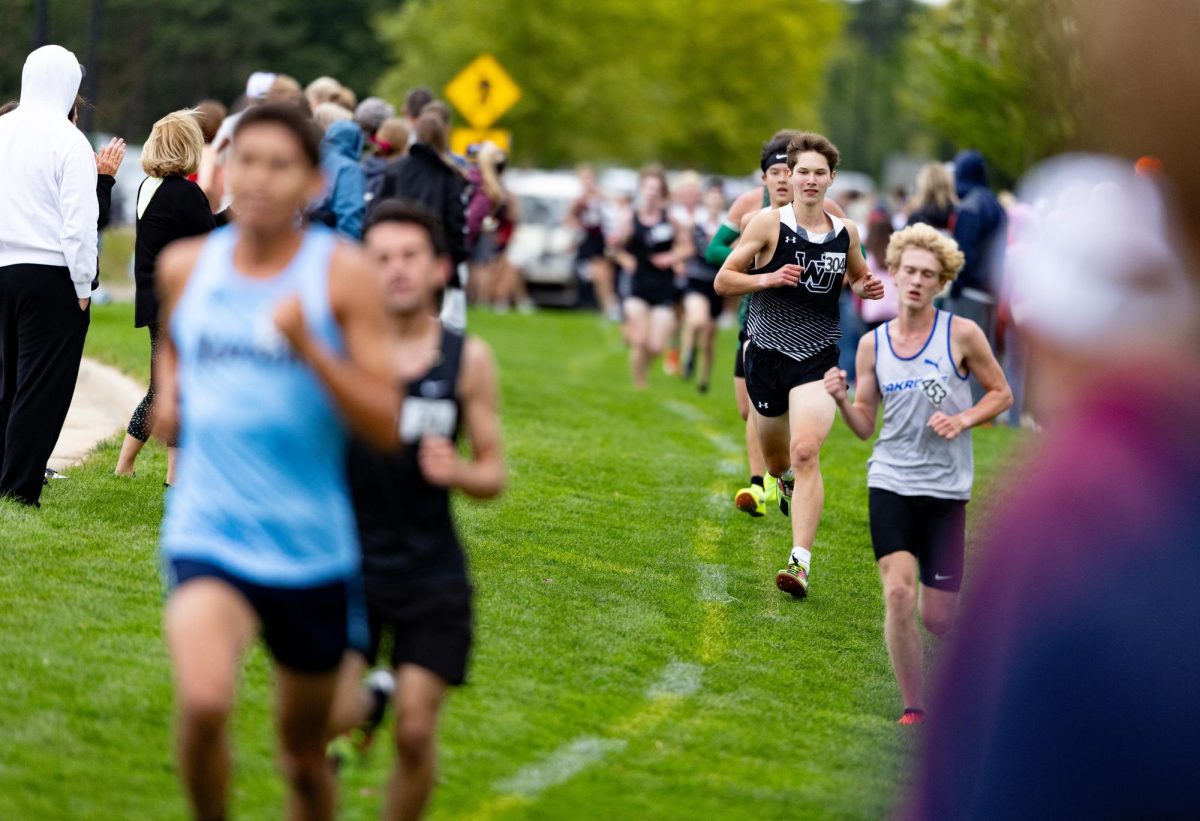Today’s athletes are NOT soft

Grandville spikes the ball over as Magaly Lemus attempts to block it.
October 27, 2022
“You’re soft.”
“You’re weak.”
“You don’t work hard.”
Is this you?
There’s a stigma today’s athletes are soft. On September 8, 2019, NFL kicker Lawrence Tynes responded to a tweet about athletes requesting to be traded after a loss. “This is what today’s athletes do, they run from adversity. They’re soft, weak minded and all about themselves.”
Tynes feels like he has been surrounded by athletes that have been “babied” by their coaches, and he blames these coaches for creating “weak-minded” athletes.
Continuing the Twitter conversation, major league pitching coach Lantz Wheeler tweeted, “That’s the fight we have today as coaches. How far can we go to create a tough culture without being reprimanded by soft people? That’s where we are in athletics today.” Wheeler believes that athletes are soft and coaches need to create a tougher culture.
Not all adults think today’s athletes are soft. West Ottawa’s three-sport coach Joe Diekevers said, “I don’t think players these days are more weak minded. Our girls cross country team is a great example of this. Those girls are super tough, successful and model students.” These girls work countless hours a week. They have few days off even in the summer.
A 1991 Holland High School graduate, Krista Gacia’s summer consisted of hanging out with friends, going to the beach and camping, but for many athletes today, that’s what they wish their summer would look like.
A normal day for Soph. Magaly Lemus is a normal day for most athletes today. She goes to school, lifts weights, plays volleyball, and does homework before going to bed. Surprisingly these are the easy days for Lemus. “The summer days when I would be in the gym all day were the hardest,” Lemus said. Sometimes she would spend close to 8 hours in the gym with only a small break.
“One day in June, I was at the school from 7:30 am until 4:30 for camp. I went home for 20 minutes and then had to go back to school for three basketball scrimmages. I didn’t get home until 9:30 and I was exhausted,” Lemus said. Most Fridays and Saturdays in the summer were filled with volleyball scrimmages. Even the off days for Lemus weren’t quite days off. She would normally work all day.
Summer break is a time for students to have a break, but oftentimes summer is more demanding than the school year for today’s athletes. Athletes are constantly under pressure causing themselves to be overworked. However, it makes these athletes stronger physically and mentally.
Garcia participated in swimming and soccer all four years of high school. She loved playing sports, and especially loved competition. “I thrived under pressure and was super competitive and was bored during the off-season,” Garcia said. In the off-season she had nothing to do. Sometimes she would run to help herself stay in shape. In the past, teams weren’t required to train or do another sport during off-season. Travel sports didn’t exist 30 years ago. During the summer, Garcia didn’t have any summer lifting or conditioning, which means she had a lot of downtime to do whatever she wanted. Garcia did do USA swimming in the summer but that was it. They only had 3 meets the entire summer.
School sports aren’t the only requirement for athletes today. Athletes are also expected to participate in travel sports and improve in the offseason. However, multi-sport athletes don’t have an off-season. Frequently, they go from school practice to travel practice. “If I don’t play travel sports, I’m worried I might fall behind the others as they get better,” Lemus said. School coaches bank on their athletes to partake in travel sports. If they don’t, it could cost athletes in the future.
There is more pressure for students today to do well in school and on the court. Most adults expect athletes to be successful in aspects outside of sports. These expectations are too high to achieve, which causes athletes to lose confidence. Athletes rely on validation from adults to perform at their peak. Coaches today want students to perform their best every day. “Sometimes school is so draining, by the time I have to practice I have no energy,” Lemus said. Varsity athletes’ playing time is unknown. Practicing at their best is crucial if they want to play in games. Student-athletes are forced to meet unrealistic expectations and it affects their mental health.
Garcia never had severe mental health struggles. However, she did face difficulties. “It was challenging at times because I would have a lot of homework to do but I was able to manage it,” Garcia said. Her coaches always talked about how important focusing on school was. The school’s rule was that Athletes had to have better than a “C” for them to practice and play in games. While being a student-athlete was very demanding for Garcia, she was able to overcome her barriers. “I had great coaches that were flexible and understanding,” Garcia said.
Coaches today are tough on their athletes. They constantly critique their players and try to help improve their skills. However, today’s athletes are more than capable of taking tough criticism and applying it to their game. Jr. multi-sport athlete Josie Kuyers said, “When my coaches critique me, it makes me want to do better and play harder.” Adults need to realize that today’s athletes are not weak, and that they won’t crumble under pressure when their coaches are loud and demanding.
Today’s athletes are the opposite of weak. “If anything, coaches are harder on the athletes today. Especially when it comes to travel sports and the competitive nature between athletes,” Garcia said. Athletes are always looking for athletic validation and will never get it from adults that have this perfect image of them. The times have changed and the mindset of these adults needs to too. Adults that expect high school athletes to be perfect will only tear down their confidence and ruin their love for their sport. Will these adults learn what type of pressure they are putting onto athletes or will they continue until athletes are burnt out?



